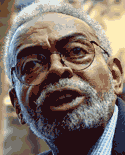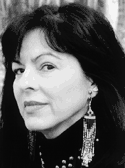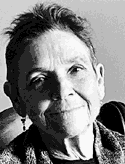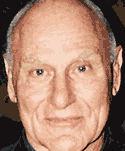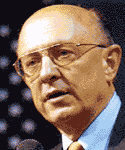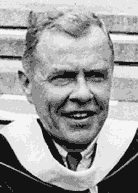
 |
||
The Yale Alumni Magazine is owned and operated by Yale Alumni Publications, Inc., a nonprofit corporation independent of Yale University. The content of the magazine and its website is the responsibility of the editors and does not necessarily reflect the views of Yale or its officers. |
When the Afro-American Cultural Center asked poet Amiri Baraka to speak on February 24 to mark Black History Month, the invitation sparked a campus debate because of his perceived anti-Semitism. Baraka, whose talk attracted about 100 people, did little to mitigate the situation, standing by his contention—first made in a poem called “Somebody Blew Up America”—that Israel was complicit in the September 11 attacks. Baraka denied that he is anti-Semitic, adding that “you want to know anti-Semitism, Yale is the place.”
“Indians are the ghost riders in history. We’re out of the picture,” said Choctaw author and playwright LeAnne Howe at a February 19 master’s tea in Calhoun College. Spicing up her talk with colorful anecdotes and even a recipe for traditional Native American bean bread, the winner of the 2002 Ford-Columbus Foundation Book Award described how she has tried to “tell our story without sentimentalizing.” Howe said that a lot of what she writes comes from her own experience and intense research, but added, “All writers dream their characters, whether they admit it or not.”
“No one should be indispensable, and certainly not politicians,” said Defense Department official Roger Pardo-Maurer '84 at a Berkeley College master’s tea on February 24, explaining his recent combat tour in Afghanistan as a Green Beret. “The media sanitizes war too much,” said Pardo-Maurer, whose slide show included two images of dead terrorists so gruesome they drew gasps from the audience. “It should be shown as it is.” But he also said that most Afghans are “overjoyed to the point of tears to have us there.”
In 1951, poet Adrienne Rich’s first book was chosen by W. H. Auden for inclusion in the Yale Series of Younger Poets. Fifty-two years later, Rich has won Yale’s other major poetry honor, the Bollingen Prize in American Poetry. Rich was honored for her latest volume, Fox: Poems 1998–2000, and for lifetime achievement. The judges praised her “honesty” and her “continuous poetic exploration and awareness of multiple selves.” The $50,000 prize was established in 1949 by the late Paul Mellon.
Sculptor Richard Serra '64MFA may have opened his February 20 lecture at the Art Gallery with a ten-minute slide show, but his talk was all 3-D. “It’s what the space engenders, how you feel about being in a telephone booth or a football stadium,” he said. “I depend on walking and looking—simple observation.” Serra, best known for transforming enormous sheets of industrial metal into public works of art, is no stranger to controversy. “You stay with it. It becomes a saga,” he said. “The obsession’s half the game.”
For its inaugural event, the Yale College Students for Democracy invited former CIA director James Woolsey '68LLB to lecture on February 13. Calling the war on terror a “war of freedom against tyranny,” Woolsey argued that peace in the Middle East will be impossible without the installation of democratic regimes, a task the U.S. has failed to take seriously in Iraq and Afghanistan. “After this country wins a war, we tend to go on a national beach party,” said Woolsey. “This is as difficult a situation as any we’ve seen in the post-Cold War world.” Close-Up Some people say that Richard C. Lee saved New Haven, others that he nearly destroyed it. But there is no doubt that the savvy politician who served as the city’s mayor from 1954 to 1970 got more done than anyone could imagine. Lee, who died on February 2 from heart disease at the age of 86, oversaw a massive redevelopment of his home city, aided by hundreds of millions of federal dollars and then-state-of-the-art planning ideas.
Lee, who never attended college, started out as a newspaper reporter before spending a decade (1944–1954) as the head of the Yale News Bureau. When he was elected the youngest mayor in city history, his many student supporters saw his victory as their own, and he in turn always took pride in his honorary master’s degree from Yale, which was granted in 1961. The theories behind many of Lee’s redevelopment projects—including the Chapel Square Mall and the Oak Street Connector—have been largely discredited, but Lee is remembered as a man who reacted with admirable energy to the multiple ills that faced the postwar city. Even Vincent Scully, the Sterling Professor Emeritus of the history of art, who vigorously opposed some of Lee’s later schemes, said at his death that “he really has to be regarded as New Haven’s greatest mayor.” |
||||||||||||||||
|
|
|
|
|
|
|
|
©1992–2012, Yale Alumni Publications, Inc. All rights reserved. Yale Alumni Magazine, P.O. Box 1905, New Haven, CT 06509-1905, USA. yam@yale.edu |
||
